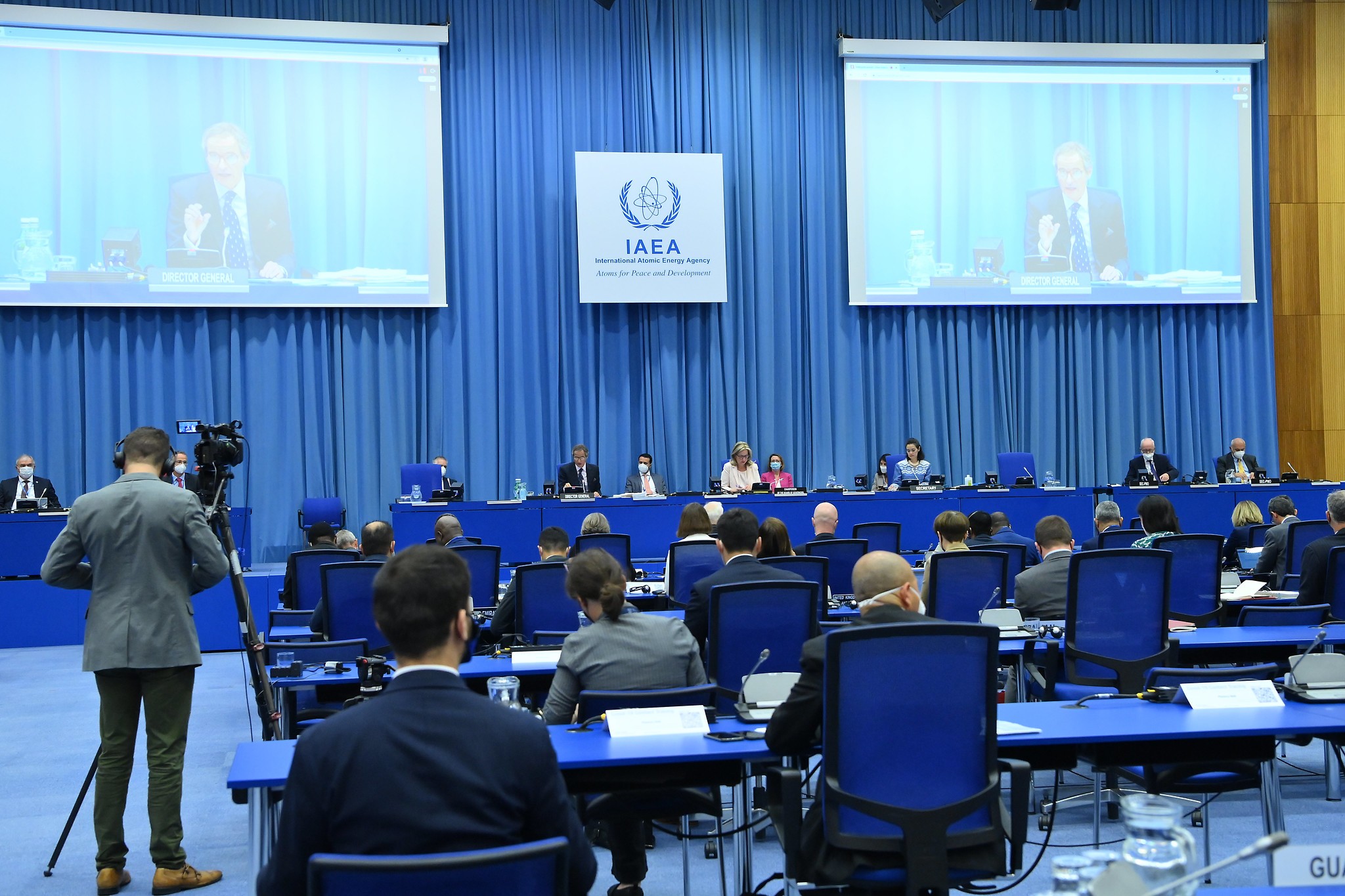 Director General Grossi, New Developments in Iran. Credit: IAEA Photo / D. Calma
Director General Grossi, New Developments in Iran. Credit: IAEA Photo / D. Calma
The Renewed Iran Nuclear Talks Create Room for a Diplomatic Solution
A possible return to the Iranian nuclear deal, the JCPOA (Joint Comprehensive Plan of Action), could be within reach and thus resolve the long stalemate between the actors involved, as the recent Iran nuclear talks just broke the ice. The importance of these negotiations has largely gone unnoticed in the U.S. as the U.S. is already facing major domestic political challenges, such as the pandemic situation and the ongoing economic uncertainty that goes with it. In addition, there is a divided Congress, the aftermath of the withdrawal from Afghanistan, climate change, and the launch of North Korea’s newly developed long-range cruise missiles over the weekend. Despite the distraction these issues present, a potential failure to resolve the Iranian nuclear negotiations may create another major challenge in the form of an uncontrolled Iranian nuclear program. Thus, the new talks between Iran and the IAEA offer new opportunities, could advance a diplomatic solution, and save the essence of the 2015 nuclear deal with Iran.
The U.S. unilateral withdrawal from the JCPOA in May 2018 left the U.S. in an isolated position. The renewed sanctions imposed by the Trump administration and the “maximum pressure” campaign led Iran to disregard the restrictions imposed by the nuclear agreement. The result was a nuclear stalemate between the parties, an even more troubling relationship between the U.S. and Iran, and the country’s response of “maximum resistance.” Since then, any efforts to save the deal have so far been fruitless.
The Biden administration expressed its readiness for a diplomatic solution to the nuclear issue right from the start. On February 24, State Department spokesman Ned Price said in a press conference that Iran’s nuclear activity is of great interest to the U.S. government and that the most effective way to ensure that Iran will never be able to acquire nuclear weapons can only be achieved through diplomacy. Press Secretary Jen Psaki further emphasized the importance of a diplomatic solution on September 15.
Likewise, the Iranian President, Ebrahim Raisi, made a statement saying he was ready to resume talks but stressed his opposition to Western “pressure.” Raisi, a conservative cleric who was elected in June this year and took office in August, shows no interest in opening up the country. At the same time, Iran is also facing economic challenges and the renewed sanctions complicate the situation even more. As such, it needs the export of oil and a return to the agreement is essential for the country.
However, while both the U.S. and Iran have indicated their willingness to resume talks, neither party has been able to agree on the first step. With his visit to Tehran, Rafael Grossi Director General of the International Atomic Energy Agency (IAEA), made a new attempt to save the agreement and to prevent another crisis. On September 12, IAEA Director General Grossi met the new head of the Atomic Energy Organization of Iran, Mohammad Eslami. It was Grossi’s first visit to Tehran since President Ebrahim Raisi took office, with more to follow soon. The parties agreed on further talks in Vienna later this month. Accordingly, after the talks, Iran agreed to allow the IAEA inspectors to service monitoring cameras at its nuclear facilities and to replace their storage media. The meeting therefore raises hope as both sides decided to build on the talks and work together constructively.
Now, both sides must be willing to compromise. While it is still unclear whether the next round of talks will bring a breakthrough, what is certain is that Iran is unlikely to be allowed to return to the same nuclear deal it originally signed, nor will it be possible to include Iran’s malign regional activities in the agreement, as some in the U.S. have demanded.
The upcoming meetings could pave the way to a diplomatic solution and prevent escalating tensions. Should the U.S. be able to reach a diplomatic solution, it may reassure America’s allies that the U.S. is a credible partner and will honor its commitments, but only if there are further safeguards to prevent a future administration from arbitrarily withdrawing again. This will help restore America’s image among the P5 + 1 member states while at the same time bring Iran to meet its obligations under the agreement. As such, reviving the Iranian nuclear deal is essential. It is important to continue the talks to avoid further escalations that affect everyone involved, including the U.S. and its allies.
The IAEA’s renewed access to its monitoring cameras will not change the overall situation off the difficult talks that lie ahead, but it is a hopeful sign and can help pave the way for the diplomatic solution sought by the Biden administration.





